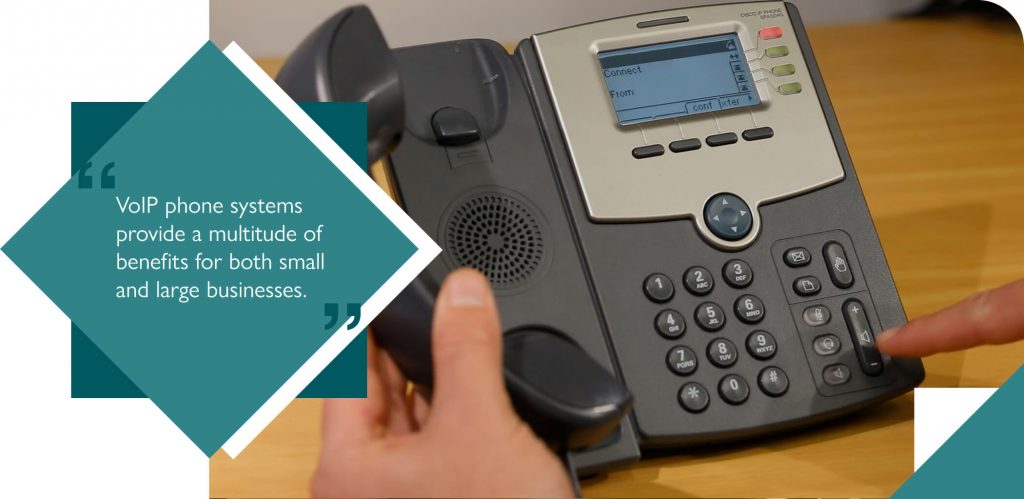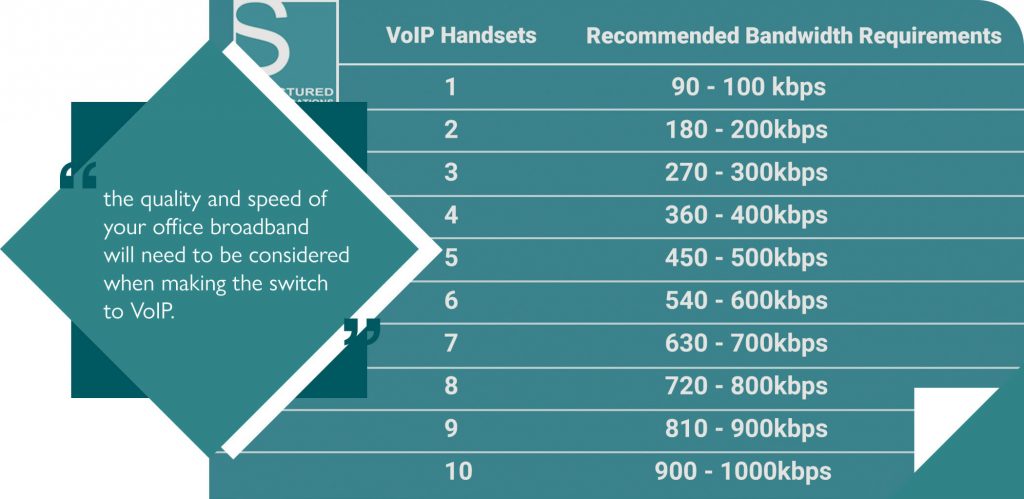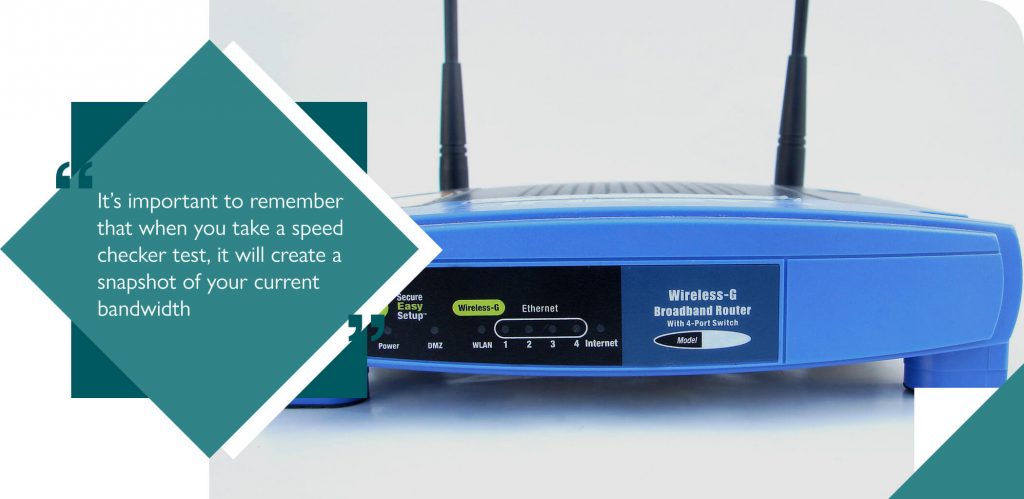Across the country, more and more businesses are tapping into the power of VoIP to revolutionise their office phone system. However, whilst transferring your phone lines over to a VoIP set-up is relatively straightforward, there are a few key pieces of criteria that you must check before making the switch – including your internet speed, also known as bandwidth.
What is VoIP?
VoIP (Voice Over Internet Protocol) is a solution that enable voice calls to be transferred over the internet, rather than the traditional telephone exchange network.
Often referred to as cloud-based telephony, VoIP calls are routed in an off-premises secure router, as opposed to in local hardware based on your premises.
VoIP phone systems provide a multitude of benefits for both small and large businesses. Such benefits include:
- Improved call quality
- Remote functionality, allowing employees to take calls whilst away from their desk
- Reduced costs, as the need for two separate phone and broadband contracts is mitigated
- Future proofing your business ahead of the proposed PSTN switch off

However, despite the numerous advantages to switching to a VoIP phone solution, if your internet is not fast or reliable enough, the quality of your calls may suffer. Low quality phone calls may leave your company looking unprofessional, as well as damage productivity.
VoIP bandwidth requirements
As a phone solution that relies on an internet connection, the quality and speed of your office broadband will need to be considered when making the switch to VoIP.
To achieve a voice call of sufficient quality, a minimum internet speed of 90 – 100 kbps (kilobits per second) is required. This amount must be multiplied per user. For example, if you have 10 VoIP handsets in use, you will require around 1Mbps of bandwidth.

However, don’t forget that your business and its employees will use the internet for things other than making VoIP calls. The speeds identified above are the minimum suggested solely for VoIP use – you will need increased bandwidth in order to ensure phone usage does not impact other fragments of your business.
Download vs upload speed
The recommended minimum bandwidth needed to make VoIP calls is for both upload and download speeds. ISPs often prioritise download speeds, as most internet users are more frequently downloading rather than uploading data.
When checking your internet speed, be sure to examine both upload and download. Neglecting to do so may impact the quality of your calls.
Checking your internet speed
ISPs (Internet Service Provider) commonly advertise broadband packages as offering up to a certain speed, rather than the exact figure. This means that businesses are often in the dark when it comes to their internet’s exact speed and capability.
If you’re thinking of upgrading to a VoIP phone system but are unsure whether your current broadband connection is sufficient, you can either reach out to your ISP directly or use an online speed checker.
It’s important to remember that when you take a speed checker test, it will create a snapshot of your current bandwidth – the results may be different at a busier time.

VoIP call quality isn’t all about internet speed
Whilst internet speed is important, there are a variety of other contributing factors than can affect the quality of your VoIP calls.
Broadband quality
The quality and reliability of your broadband is a vital consideration for VoIP. If your connection is prone to dropping out or you have increased periods of downtime, your VoIP solution may be seriously impacted, limiting connectivity across your business.
We’d recommend opting for an ISP that guarantees to provide a high level of uptime. For a business, we’d also suggest choosing a fibre broadband solution where possible, as ADSL internet (Asymmetric Digital Line Subscriber) is more prone to faults.
Business broadband contract
If you’re installing a VoIP phone system in a business, a suitable business broadband contract is essential. As opposed to a residential contract, business broadband usually includes more comprehensive customer support, as well as a reduced waiting time on repairs.
This ensures that if a fault were to occur, the amount of downtime experienced would be massively reduced, ensuring that the impact on your business would be limited.
Business broadband also usually includes a Service Level Agreement (SLA), which guarantees the level of service you will receive. If an SLA is breached, you may be eligible for compensation.
Ready to make the switch to VoIP? At Structured Communications, we are specialists in delivering premium quality cloud-based telephony, revolutionising your business’s connectivity. To find out more about or phone or broadband solutions, please don’t hesitate to get in touch.

